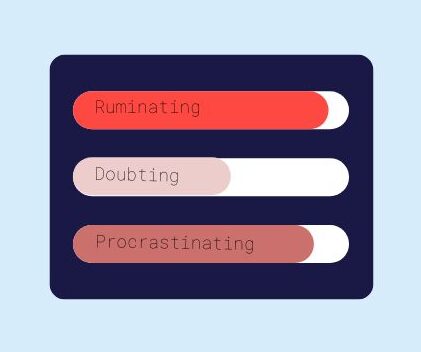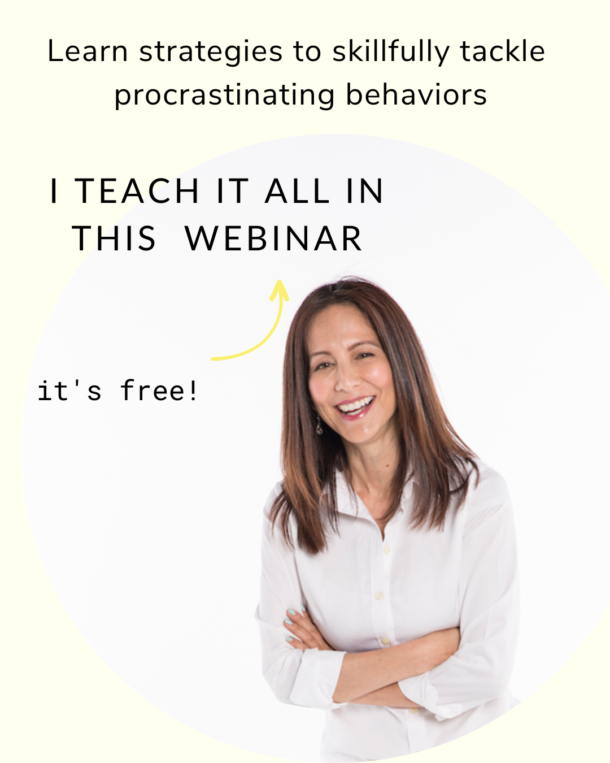Stephanie is a 16 year old girl struggling with both Obsessive-Compulsive Disorder (OCD) and Social Anxiety.
In regard to social anxiety, Stephanie worries that people will judge her for the way that she eats, so she skips eating lunch at school or orders simple things.
When talking about things with her friends, she agrees with what her friends say they like even if she doesn’t so that they don’t think she is weird.
When asking Stephanie in detail about how these “fears of being weird” show up, she shared the following.
- Lunch time at school — “You shouldn’t eat, people will judge you ” — “you shouldn’t chew too loud, people will think badly of you” — sensation: like a bowling ball dropped from rib cage to hip bones — avoid eating at school.
- Meeting someone new — “you should make a good impression” — “you shouldn’t annoy them“ — “you shouldn’t do anything gross because they will think you are a bad person”– bowling ball sensation — tries to talk as little as possible.
In regard to OCD, Stephanie experiences obsessions about earthquakes and spiders. Stephanie experiences intrusive thoughts such as “What if there is an earthquake right now?” and will play out in her brain how she would keep herself safe if that happened. When coming into contact with something that is sticky, Stephanie has obsessions about being disgusting and washes her hands multiple times until they “feel clean.”
- Before going to bed each night, she must look at each corner on the ceiling to check that there are no spiders.
- She avoids reading Manga, which she loves, if there is a possibility there will be a spider in it.
Acceptance and Commitment Therapy (ACT) has been shown to be effective for both OCD and Social Anxiety. ACT is by nature an exposure treatment because it teaches clients different skills to face any situation, activity, object, memory or image they’re avoiding.
Within ACT, clients are taught different unhooking skills to make room for all those uncomfortable and fearful experiences, while making choices to live their personal values.
So, within ACT, a key question that clients answer in every session is: Am I willing to face this fear in the service of who I want to be?
At the EBBTC we co-develop Values-based Exposure Menus with every client we work with; a values-based exposure menu is a roadmap for our work and is always updated every session.
During an exposure session, Stephanie is given her Values-based Exposure Menu and is asked to choose an exposure exercise she is willing to engage in for that session.
Before the exposure exercise, Stephanie and her therapist then work together identifying the thoughts, sensations, and urges that may show up during the exposures; next, Stephanie selects an ACT skill she wants to learn and put into action during the exposure exercise. The therapist also explored with Stephanie the long- term and short-term pay-offs of following through with urges that arrive during the exposure and whether those behaviors will bring her closer or further away from her values.
During the exposure practice, Stephanie and her therapist work together to slow down and notice and identify her thoughts, emotions and urges when facing a trigger for anxiety or an obsession.
After the exposure session, Stephanie and her therapist complete and review a debriefing form. This form examines the process of an exposure exercise, with questions such as how willing were you to experience the discomfort that comes with this exercise? and whether you moved closer or further away from your personal values.
Value-Based Exposure Exercises
Below are examples of Values-based exposures from Stephanie’s exposure menu:
- Not saying sorry when someone bumps into me so that I can be more confident.
- Eating in front of others so that I can be authentic
- Going to bed without checking the ceiling for spiders so that I can live more freely.
- Reading a book with spider pictures/information so that I can live more freely.
- Listening to stories about earthquakes so that I can live my life freely
- Getting my cash out at the register so that I can take my time
- Ordering something I don’t know how to pronounce so that I can live my life how i want to
- Using a public bathroom so that I can live freely and be confident
- Sharing things I like and hearing disagreement so that I can be authentic
- Touching something sticky without washing my hands right away so that I can live more freely


